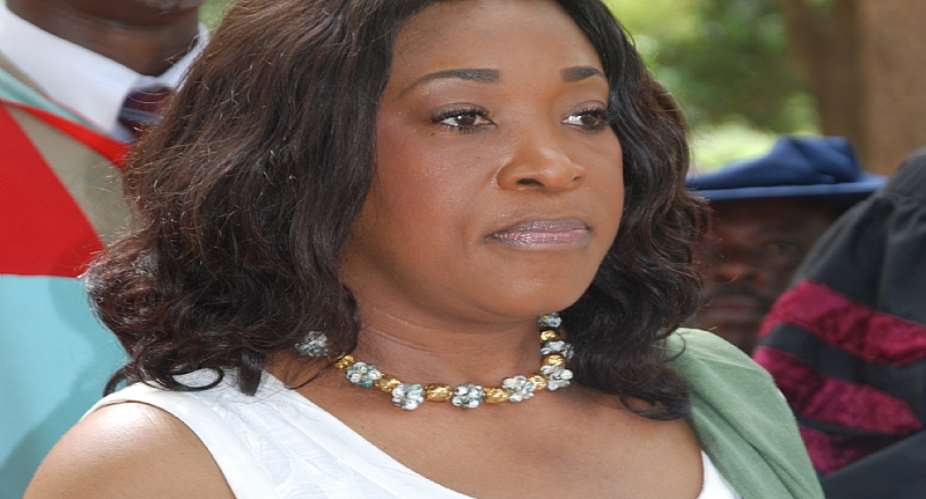If your party just got elected with a remarkable margin of victory and 80-plus parliamentary seating majority, and you also just got appointed Foreign Minister-Designate by President Addo Dankwa Akufo-Addo, you definitely could afford the luxury of telling Ghanaians having a hard time abroad, largely as a result of not having the proper residential documentation and work permit, that things were not all that bad at home (See “ ‘Things Are Not Bad in Ghana, Return Home’ – Ayorkor Botchwey” MyJoyOnline.com /Modernghana.com 1/23/17).
But you have, naturally, forgotten that things are really bad at home. Indeed, if things were not really bad at home, your party, the then-main opposition New Patriotic Party (NPP), would not have campaigned on a platform of CHANGE. And even more significantly, Ghanaian voters would not have massively voted to put your party in power with a 10-percentage margin of victory, a margin that is unprecedented in the 25-year history of Fourth-Republican Ghana. Needless to say, this is not just an ordinary one-touch victory, as we are wont to say as a people; rather, it is a mega-super-duper one-touch victory. That is just how badly Ghanaians thought the Mahama-led government of the National Democratic Congress (NDC) had been running their affairs in the lead-up to the December 2016 general election.
You see, when I left the sandy shores of Ghana some 32 years ago, come July 26, 2017, things were just as bad as they are today. Actually, things were worse than they are today. Our country was a veritable military dictatorship, with the leaden prevalence of a culture of silence imperiously presided over by a scrawny and obviously extremely famished 37-year-old craggy-faced half-Scottish Chairman Jerry John Rawlings, and rigidly enforced by his fellow Anlo-Ewe clansman, the Kwame Nkrumah-cashiered Captain Kojo Tsikata. We also had curfew from 6 pm to 6 am. In sum, Ghanaians were being herded like livestock by these half-baked, faux-socialist ideologues. Under such trying circumstances of virtual internal slavery, I would rather have joyfully lived like a homeless hobo or a tramp – no pun is intended her, of course – as the future Prime Minister Kwame Nkrumah, later President, had to once briefly endure on the New York City subway system when he had a falling out with a fellow continental African roommate who had taken him in. The guy was a Sierra Leonean national, I believe.
Back when I left the country, anybody who talked back to the key operatives of the ragtag regime of the so-called Provisional National Defense Council (PNDC), was promptly branded AN ENEMY OF THE PEOPLE and either dumped into the slammer or quietly draggled to the guillotine. Actually, we had something worse in scientific precision than a guillotine. You were simply tied to a crudely erected stake and swiftly dispatched to H-E-L-L.
I really don’t know the individual stories of the 100, or so, undocumented Ghanaian nationals who were deported from the United States by then-President Barack H. Obama, but it is almost certain that they had nearly each and every one of them been forced to leave their country of origin as a result of the quite imaginable circumstances of untold human indignities that daily confront at least some 50-percent of the country’s youths, today, who cannot be absorbed by the ever-shrinking labor market, because the leaders of both major political parties have yet to induce the sort of positive economic environment that is conducive to the creation and growth of jobs, such as the fast-tracking of industrial establishment permits and attractive tax incentives.
On State side, the quality of public education has been so flagrantly compromised by the key operatives of the Rawlings-minted National Democratic Congress, who have dominated Fourth-Republican Ghana, that it would take quite a while to bring it to par with what prevails in the most advanced and middle-level democracies. The dramatic degradation of the country’s quality of public education is most pronounced in the liberal arts and the humanities, where critical thinking is central. But much retooling also needs to be done in the science and technology disciplines.
*Visit my blog at: kwameokoampaahoofe.wordpress.com Ghanaffairs
By Kwame Okoampa-Ahoofe, Jr., Ph.D.
English Department, SUNY-Nassau
Garden City, New York
February 4, 2017
E-mail: [email protected]





 Saglemi Housing Project will not be left to rot – Kojo Oppong Nkrumah
Saglemi Housing Project will not be left to rot – Kojo Oppong Nkrumah
 Transport fares hike: GPRTU issue two-day ultimatum
Transport fares hike: GPRTU issue two-day ultimatum
 ARC endorses Alan as presidential candidate – Buaben Asamoa
ARC endorses Alan as presidential candidate – Buaben Asamoa
 Akufo-Addo appoints Kwasi Agyei as new Controller and Accountant-General
Akufo-Addo appoints Kwasi Agyei as new Controller and Accountant-General
 PNC dismiss reports of mass resignations
PNC dismiss reports of mass resignations
 PAC advocates for revenue collectors to be engaged on commission basis, not full...
PAC advocates for revenue collectors to be engaged on commission basis, not full...
 Genser Energy commissions 110km of natural gas pipeline at Anwomaso
Genser Energy commissions 110km of natural gas pipeline at Anwomaso
 Naa Torshie calls for tolerance, peace ahead of 2024 election
Naa Torshie calls for tolerance, peace ahead of 2024 election
 Asantehene commends Matthew Opoku Prempeh for conceiving GENSER Kumasi Pipeline ...
Asantehene commends Matthew Opoku Prempeh for conceiving GENSER Kumasi Pipeline ...
 Let’s do away with ‘slash and burn politics’ in Ghana — Dr Adutwum
Let’s do away with ‘slash and burn politics’ in Ghana — Dr Adutwum
